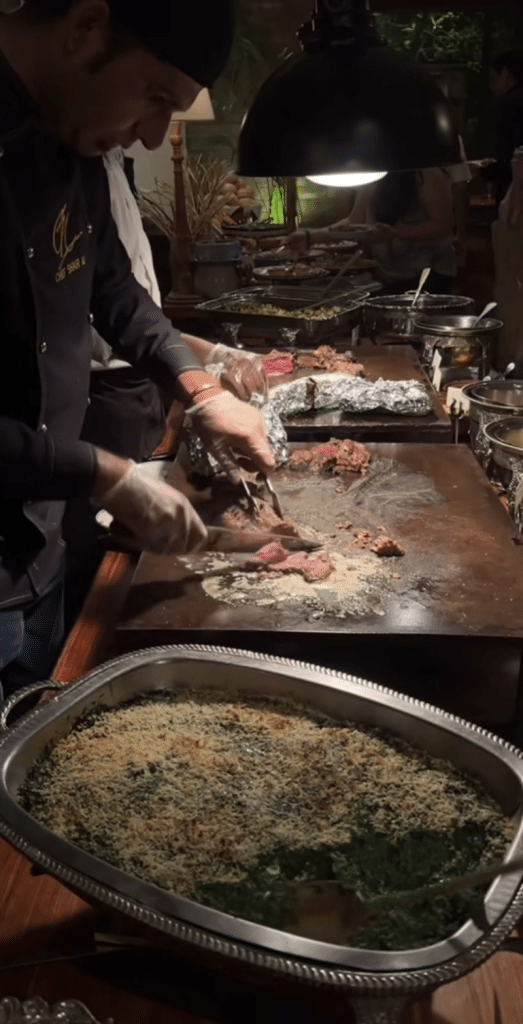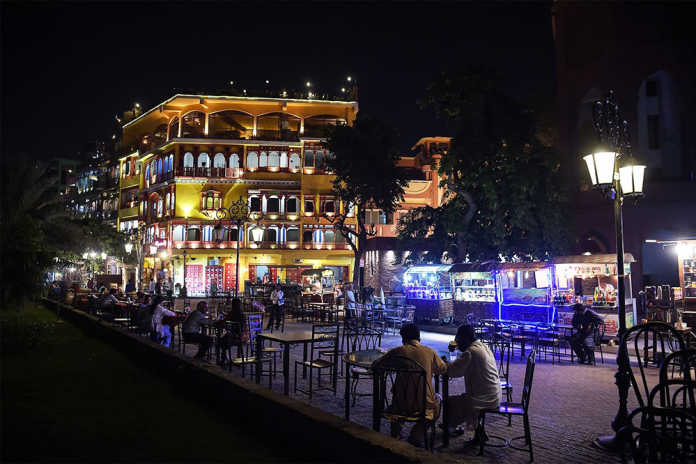Lahore, known for its vivacious spirit, historical significance, and a pulsating culinary scene, is now facing an unexpected twist in its modern tale – an untimely curtain call on its restaurants. In a move purportedly aimed at combating the smog that engulfs the city, restaurants have been mandated to close their doors early, leading to ripple effects throughout Lahore’s culinary landscape.
The series of court orders that culminated in August 2023, directed by Justice Shahid Karim of the Lahore High Court, has left the restaurateurs in a lurch. While the intention behind the move may be noble, its implementation has left much to be desired.

The Impact: Beyond Just Sales
Restaurants are not merely places to dine; they are hubs of culture, socialization, and economic activity. The current restrictions have delivered a significant blow to an industry that thrives during the nocturnal hours. Nearly 60% of restaurant sales in Lahore occur post 9:00 PM. The truncation of operational hours means that even with an 11pm curfew, eateries can only facilitate a single turnover, denting their profit margins.
Furthermore, niche establishments, designed exclusively for night owls—employees from call centers, hospitals, and other round-the-clock sectors—are facing an existential crisis. Such businesses are now grappling with the grim possibility of shutting their doors permanently, leading to job losses and a further slowdown in the economy.

The Economic Quandary
It is not just about the sheer loss of revenue. The restaurant industry in Lahore employs a staggering 1 million individuals. It stands as the second-largest domestic employer in Punjab, outdone only by the construction sector. The cutback in operational hours translates into a reduction of jobs, a bitter pill to swallow, especially amidst the current economic adversity.
Adding to the woes is the economic conundrum of stagflation—a situation characterized by stagnant growth coupled with high inflation. While the prices of ingredients have skyrocketed, making food costs account for 55% to 65% of sales, the ability to pass on these price hikes to the consumer remains constricted.

A Global Anomaly
Internationally, it is a rarity to witness restaurants restricted by closing times. Cities like London and Barcelona might see establishments wrapping up early, but that’s largely driven by operational costs and consumer habits. Comparatively, in regions like the Middle East, where long, hot summer days prevail, evening outings post-sunset are customary.
Pakistan’s decision to curtail restaurant timings, seemingly emulating the West, may not be entirely appropriate. Our unique cultural, economic, and social dynamics warrant a different playbook.

The Unintended Consequences
A troubling fallout of the ruling is the skewed enforcement. Tax-paying establishments, especially those in city centers and multinational chains, face the brunt, being slapped with fines and heightened scrutiny. Meanwhile, roadside eateries on Lahore’s fringes operate freely, diverting patrons from the organized sector to the unregulated realm.
Such uneven enforcement not only jeopardizes the economic stability of city-center restaurants but also potentially exposes patrons to health and safety risks.
The Smog Conundrum: Lack of Evidentiary Link with Restaurants
One of the more perplexing facets of this decision revolves around its grounding principle: combating smog. It’s imperative to clarify that while smog is a concerning environmental issue for Lahore and several other cities worldwide, the correlation between restaurant operational hours and smog production lacks empirical evidence.
Restaurants primarily contribute to the economy through service and hospitality, not industrial emissions. The major contributors to smog, according to environmental studies, are vehicular emissions, industrial output, and certain agricultural practices. Curtailing restaurant hours seems misplaced when there’s no direct evidence linking their operations to smog’s exacerbation.

Moreover, by inadvertently pushing consumers towards outskirts eateries post-curfew or encouraging more vehicular movement during condensed operational hours, we might be increasing the very environmental footprint we aim to decrease. Thus, not only is the policy misdirected in addressing the root causes of smog, but it may inadvertently aggravate the situation.
In light of this, it’s essential that policies aimed at environmental betterment are rooted in concrete scientific evidence and target the primary contributors to the problem, rather than industries like restaurants that have minimal to no direct link with smog production.

Conclusion
The narrative is clear: while environmental concerns are vital, so is the economic pulse of a city. It’s imperative to re-evaluate the measures, integrating insights from the stakeholders most affected by them. Policymakers should navigate this intricate balance, ensuring that Lahore’s reputation as a gastronomic paradise isn’t lost to the annals of history.


